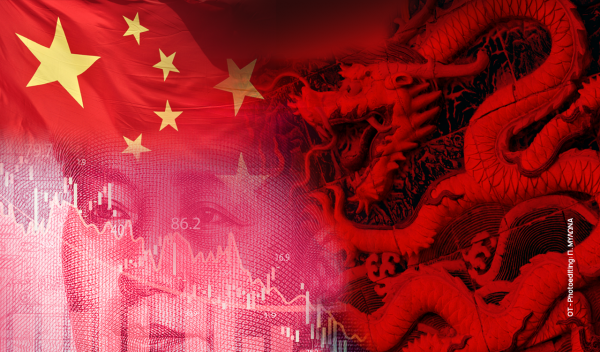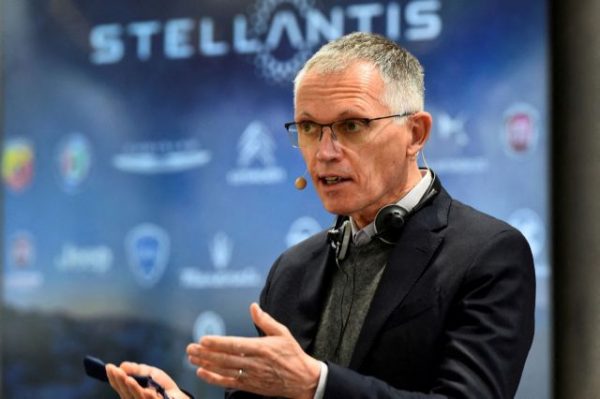
For the second time in a few months, the energy suppliers, PPC and private providers, are opposed to the context of the interventions of the Energy Regulatory Authority, which, according to RAE, aim at the transparency of the bills that consumers pay for electricity.
This time the “no” came in the supplementary package of the Regulator’s proposals that concerns the configuration of three categories of invoices with risk rating but also the introduction of printed invoices in a single format. With regard to tariffs, it is recalled that the Authority’s proposal provides for fixed billing to be defined as “zero risk” invoices, floating billing with a surcharge limit to be defined as “marginal risk” invoicing and floating billing without a surcharge limit to be considered as “High Risk”.
Reactions
RAE published yesterday the positions of the participants in the public consultation on its aforementioned proposals.
More specifically, private providers, some indirectly and others directly, emphasize that the proposed interventions limit competition and at the same time increase risk of harming consumers, especially with the specific categorization of tariffs.
The latter is shown by the example given by the Hellenic Association of Energy Suppliers: For example, a fixed invoice with a two-year commitment that would be classified as “zero risk” could currently look more attractive to the consumer than a “high risk” invoice. However, in the event of a de-escalation of current wholesale market prices in the coming months, the “zero risk” tariff will ultimately be particularly detrimental to the consumer who, by the end of his contract, will be forced to procure energy at prices much higher than those which would correspond to a floating invoice. In this context, our Association considers that the terms “zero risk”, “limited risk”, etc. should be deleted and only the designations “fixed”, “floating” etc. should be maintained, which fully define the objective characteristics. without making an appreciable assessment of their attractiveness to consumers “.
At the same time, however, individuals point out the concentration that is still present in the domestic electricity market.
Mytilineos
Mytilineos with its intervention opens issues of competition in the operation of the electricity market. The firm even emphasizes that a precondition for any regulatory interventions is the treatment of structural problems of the market:
“The regulatory improvement of the operation of the electricity supply, presupposes, before any intervention at the level of the” form “of the offer and / or the content of the invoicing, the identification and prioritization of addressing the real causes and separating them from potentially problematic practices the symptoms rather than the chronic pathogenesis it faces ”
The listed company also refers to the issue of equal access of players to hydroelectric production: “In Greece, despite the plethora of alternative providers, the horizontal mobility of customers and the change of representation remains poor. Unequal access to the domestic energy mix (where PPC retains exclusive and privileged access to hydroelectric generation), combined with the historic provider’s predominant position in supply, significantly complicates the development of a healthy competitive market and further quality improvement. and electricity supply prices to the final consumer. As RAE itself has pointed out in the past, real competition can only be achieved by “differentiating the fuel mixture used by each production company so that all competitors can have approximately the same average cost”.
Mytilineos, citing cost figures, more or less claims that PPC regulates prices below cost and refers to the case of the company’s fixed billing: “Most suppliers are unable to compete with the specific price levels, the adoption of such policies leads to increasing return / movement of consumers to the PPC, resulting in greater market closure and further weakening of competition in the retail market “.
Mytilineos emphasizes that “it is necessary that one of the Authority ‘s priorities should be to mitigate market power by drastically reducing its share of the supply market to levels well below 40% and at the same time ensuring a level playing field for all suppliers. that is, the urgent requirement to meet on time all the financial obligations of the players to the managers, etc. Otherwise, the supply market is blatantly distorted and attempts to increase transparency through full consumer information obviously have no substance.
Heron
Heron characteristically states: “Our company considers that neither the strict standardization, nor the categorization of the invoices based on the proposed risk rating system serve transparency. On the contrary, our Company points out that the strict standardization of the “Electricity Supply Request Application” Form and the “Consumption Account” Form does not derive from the provisions of the European or national legal framework and restricts the business freedom of suppliers, that have already invested significant amounts of money in both the design and the information systems that support the structure of these forms.”
Elsewhere, the energy production and supply subsidiary of GEK TERNA, emphasizes: In the context of demand participation in the wholesale market is still at the design level, liquidity in the intraday market that would help better manage disparities and thus reduce energy costs is low and liquidity in the futures market that would lead to better risk management almost non-existent. Therefore, at the present time, the proposed standardization is static and its introduction will act as a deterrent to the development of new services and products already offered by suppliers – such as our company – (PPAs, green tariffs, savings, electric drive, etc.) and therefore ultimately to the detriment of free competition and the final consumer. ”
Volton
Volton is on the same wavelength: “The proposed categorization of supply invoicing, especially as concerns their “risk”, directly strike at competition and innovation, aiming at the regulatory designation of services offered, while at the same time they negatively predispose consumers as concerns invoices with a fluctuation clause, as against fixed invoices.
ESPEN
The Hellenic Association of Energy Suppliers stresses that “the homogenization of the offered products and services would intensify the structural asymmetry between the participants in the supply market, strengthening the dominant position of the PPC and its deviation from the legal obligation to limit its share to the 50%, with adverse effects on competition and consequently on all consumers “.
PPC
PPC, in turn, states its opposition to the categorization of invoicing in the way proposed by RAE.
According to the public company, this proposal creates “feelings of fear in the consumer when making his financial decision, removing him from any products, which despite the price fluctuations can be very attractive and ideal for his needs.”
PPC also points out that such interventions “the market is indirectly led to the regulation of invoicing”.
Volterra
Volterra also states the opposite with the proposed interventions of RAE.
As he points out “the standardization will not bring any additional benefit in favor of the customer, on the contrary it may work aggravating and misleading to his detriment”.
Industry and consumers
The Association of Industrial Energy Consumers (EVIKEN) is in favor of RAE’s proposals:
“When the invoices of vertical suppliers transfer 100% of the market risk to their customers, then there is a risk that they will become indifferent to the price spike, as is the case today in the wholesale market. Which means that vertical suppliers are by no means burdened by the current energy crisis. “Contrary to the current market conditions, some of the producers are reaping wind fall profits”, comments EVIKEN
But also the Union of Quality of Life Consumers (EKPOIZO) agrees with the proposals of RAE, noting that they serve the goals of transparency and protect consumers from arbitrary, opaque and abusive practices.
Latest News

German Ambassador to Greece Talks Ukraine, Rise of Far Right & Tariffs at Delphi Economic Forum X
Commenting on the political developments in his country, the German Ambassador stressed that it was clear the rapid formation of a new government was imperative, as the expectations across Europe showed.

Athens to Return Confiscated License Plates Ahead of Easter Holiday
Cases involving court orders will also be excluded from this measure.

Servicers: How More Properties Could Enter the Greek Market
Buying or renting a home is out of reach for many in Greece. Servicers propose faster processes and incentives to boost property supply and ease the housing crisis.

Greek Easter 2025: Price Hikes on Lamb, Eggs & Sweets
According to the Greek Consumers’ Institute, hosting an Easter dinner for eight now costs approximately €361.95 — an increase of €11 compared to 2024.

FM Gerapetritis Calls for Unified EU Response to Global Crises at EU Council
"Europe is navigating through unprecedented crises — wars, humanitarian disasters, climate emergencies," he stated.

Holy Week Store Hours in Greece
Retail stores across Greece are now operating on extended holiday hours for Holy Week, following their Sunday opening on April 13. The move aims to accommodate consumers ahead of Easter, but merchants remain cautious amid sluggish market activity.

Green Getaway Ideas for Easter 2025 in Greece
Celebrate Easter 2025 in Greece the sustainable way with eco-farms, car-free islands, and family-friendly getaways rooted in nature and tradition.

Civil Protection Minister Details Summer Firefighting Plans at Delphi Forum
At the 10th Delphi Economic Forum, Minister of Climate Crisis and Civil Protection Yiannis Kefalogiannis discussed Greece's plans for the upcoming fire season.

How Shops and Markets Will Operate During Easter Holy Week
The Easter holiday schedule has been in effect since April 10, with retail stores open Palm Sunday, and most supermarkets also operating to meet consumer demand for Easter shopping

Why Is the French Aircraft Carrier Charles De Gaulle in Piraeus?
Docking in Piraeus after a four-month deployment in the Indo-Pacific region, the admiral of the aircraft carrier the Charles de Gaulle says, "Greece is our best partner in the Mediterranean."








































 Αριθμός Πιστοποίησης
Αριθμός Πιστοποίησης